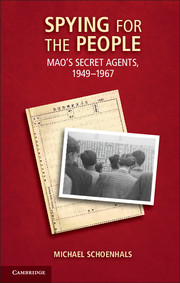Postscript
Published online by Cambridge University Press: 05 January 2013
Summary
As I was finishing this book, I emailed a friend – a perspicacious social historian in Florence who for many years has written on both the Soviet Union and Mao's China – and admitted that I was still uncertain about what, if any, firm conclusions could be drawn about “the meaning of it all.” He wrote back suggesting that I console myself with the thought that “none of us is ever going to work out ‘what it all meant’ (apart from the third-rate scholars who knew the answer before they started).” I have been mulling over his message ever since, my mental synapses also triggering vague recollections of Eric Hobsbawm's warning that “historians as an occupation are the primary producers of the raw material that is turned into propaganda and mythology. We must be aware that this is so.”
This study has been infinitely more conjectural than anything I have done in the past. Writing about the Cultural Revolution was easy, because so much received wisdom on the subject was in the public domain already and could be debated at length with individuals with firsthand experience of what it had been like. In this last respect, even talking to myself made sense: after all, I had been there. Doing research on agent work in Mao's China proved harder by an order of magnitude. Initially, as I have already hinted (in the Acknowledgments), I did not even know what the Chinese term teqing (agent) meant. History as a practice thrives on the exchange of ideas, but the number of historians who had studied agent work in Mao's China with whom I could have in-depth conversations turned out to be fewer than the number of fingers on Harold Lloyd's right hand. Therefore, this study, I fear, has only managed to throw a very faint beam of light on an institution that is still shrouded in darkness and attended by a bodyguard of propaganda and mythology. My firm conclusions? Only one: that widespread – but not necessarily efficient – use of agents was made by the competent governmental authorities in the urban People's Republic up to 1967 in counterintelligence and in compliance-oriented surveillance of status offenders (that is to say, of “class enemies”).
Information
- Type
- Chapter
- Information
- Spying for the PeopleMao's Secret Agents, 1949–1967, pp. 233 - 234Publisher: Cambridge University PressPrint publication year: 2013
